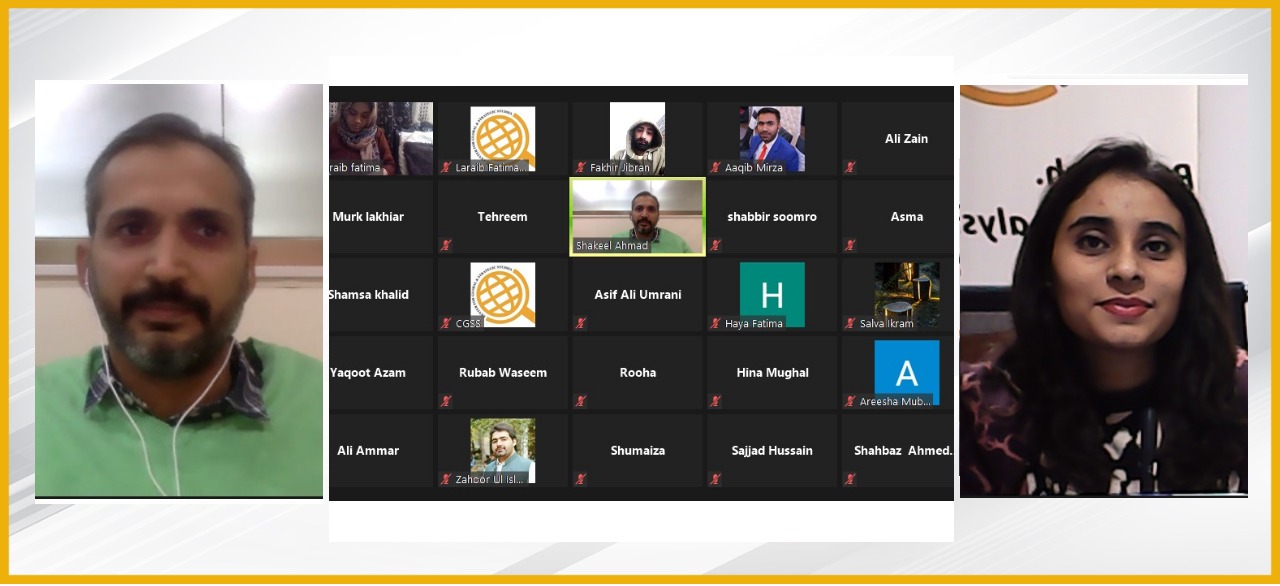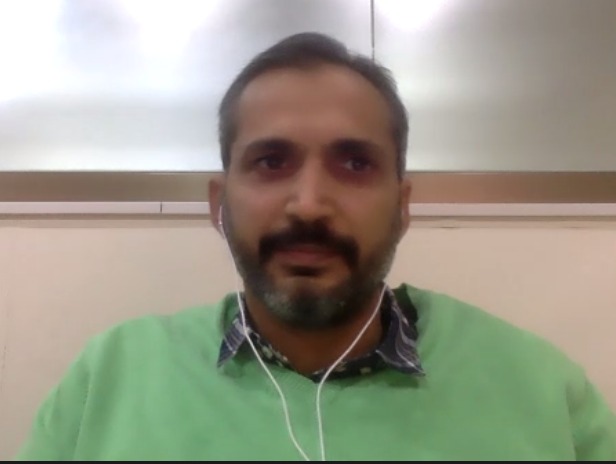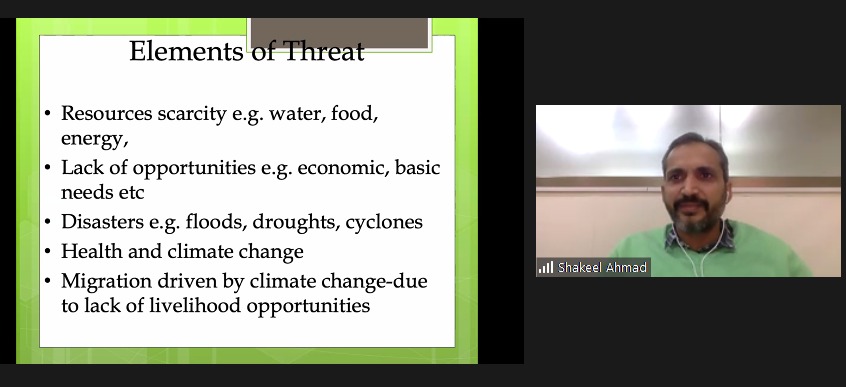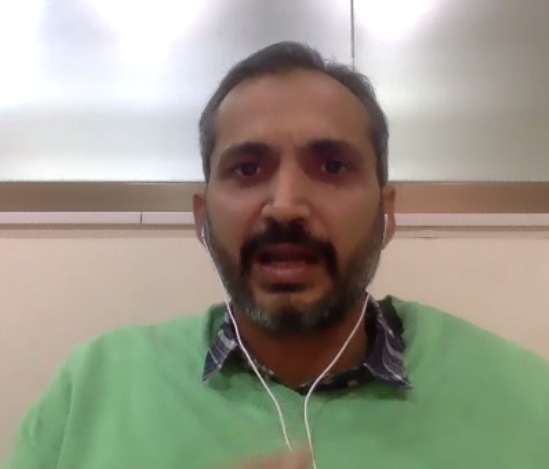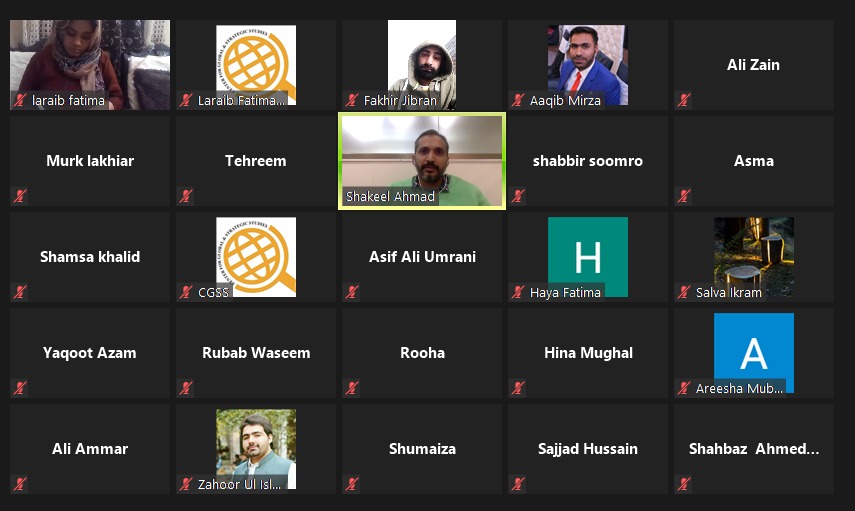Third Session of the Online Internship Program, “The Contemporary Non-Traditional Security Challenges” organized by Center for Global & Strategic Studies (CGSS), Islamabad
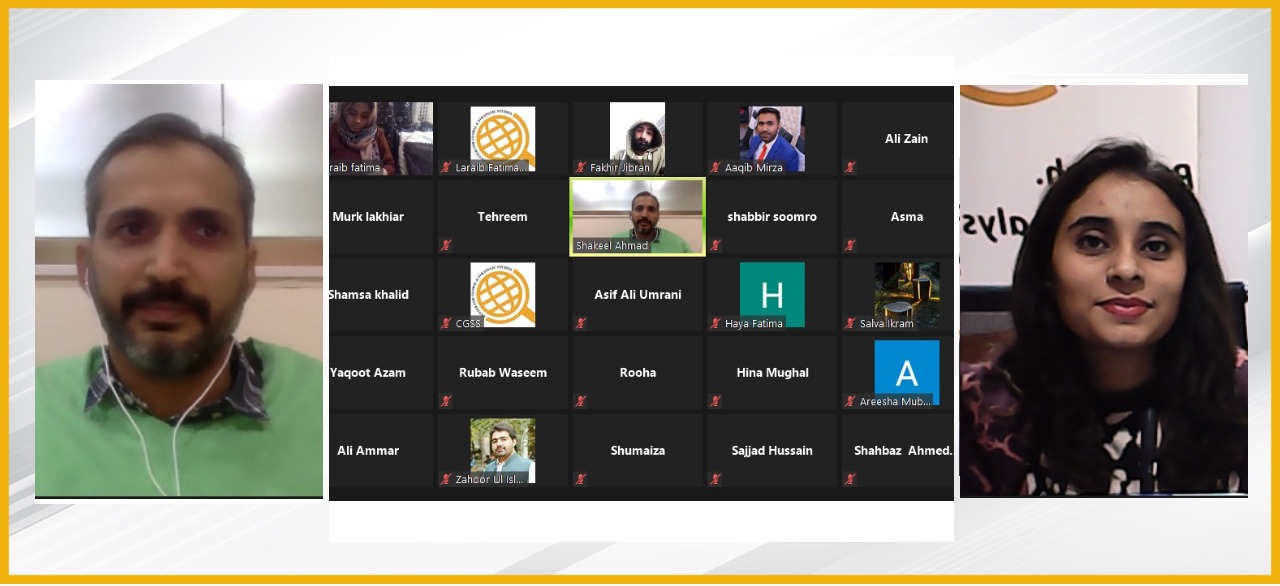
On 1st February 2021 the Third Session of the Online Internship Program, “The Contemporary Non-Traditional Security Challenges” organized by Center for Global & Strategic Studies (CGSS), Islamabad was held.
The internship aims to provide an opportunity for students to understand the contemporary global non-traditional security challenges, gauge the existing potential, build resilience and find the solutions to mitigate the daunting impacts of these transnational issues.
The theme for the Third session was, Climate Change: Risks and Analysis and the speaker for this session was Mr. Shakeel Ramay, Member Board of Experts, Center for Global & Strategic Studies, Islamabad.
Mr. Shakeel presented a detailed analysis of the contemporary situation of Climate Change and National Security. He initiated the discussion by explaining the difference between climate and weather. He explained that the situation of climate change begun when massive industrialization took place in the world, causing the emission of harmful gasses into the atmosphere.
He also discussed the history of the Climate Change debate that has got momentum over the past few years. Moreover, Mr. Ramay also shared that it was the security agencies who presented the idea of climate change and its threats to national security. Moreover, he also highlighted the natural resources that will be impacted by the climate change situation including, water resources, agriculture, forestry, biodiversity, coastal zones, and natural calamities as well.
Discussing the concept of Climate Change and threat to human security he stated that Pakistan will face a severe impact of this worsening climate situation. As when combined with the existing problems in Pakistan, climate change will cause severe havoc. Stating examples, he mentioned the low productivity of the agriculture sector and the situation of droughts and floods in many areas of Pakistan.
Mr. Shakeel Ramay presented a comprehensive Case Study of Pakistan and discussed the most vulnerable sectors in the context of Pakistan. He stated that climate change is a major threat to our natural resources especially water, as it can cause floods, draughts, and unavailability of food as well.
Mr. Ramay also put forward suggestions to effectively tackle the situation of Climate change. First and foremost, Pakistan must develop a National Vulnerability Index for better planning. Moreover, the inclusion of the human security dimension in national planning and implementation should also be prioritized.
The session was moderated by Ms. Laraib Fatima Hassan, Communication & Coordination Manager, CGSS.
It is noteworthy that students from all across Pakistan are enrolled in this Online Internship Program. This program will prove to be a milestone for the students of International Relations & related fields to understand the contemporary dynamics of Non-Traditional Security Threats.
